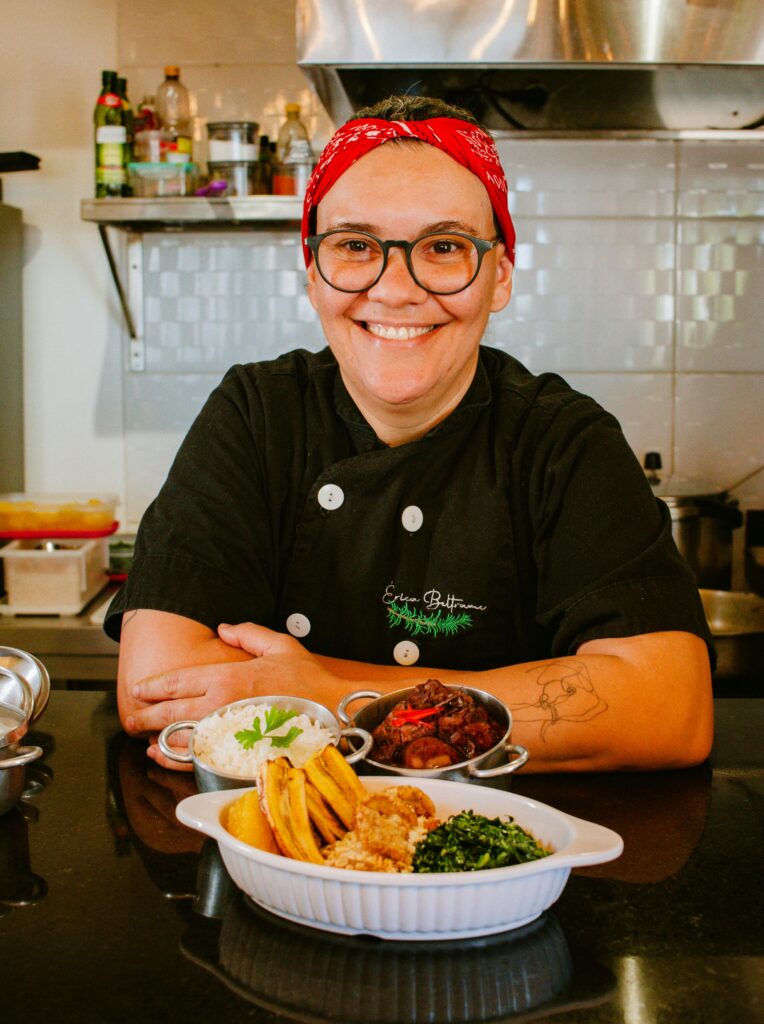Popular High-Demand Vocational Programs
Vocational education offers students practical skills for specific trades and careers. As a parent in Ontario, you want the best for your child. Here are some high-demand vocational programs that can set them on a successful career path.
Healthcare Programs
Healthcare continues to be a growing field. Programs like Nursing, Medical Laboratory Technology, and Personal Support Worker (PSW) are in high demand. These courses offer hands-on training, preparing students for immediate employment. With an aging population, careers in healthcare provide job security and meaningful work.
Why Healthcare?
- Job Security: Consistent demand for healthcare professionals.
- Diverse Opportunities: Various specializations to pursue.
- High Impact: Make a difference in people’s lives.
- Competitive Salaries: Attractive earning potential.
Information Technology (IT) Programs
The tech industry is booming, making IT vocational programs extremely popular. Courses in Network Administration, Cybersecurity, and Software Development provide students with the skills needed in today’s digital world. These programs often include certifications that enhance employability.
Why IT?
- Growing Industry: Constant need for IT professionals.
- Innovation: Work with cutting-edge technology.
- Flexibility: Opportunities for remote work.
- High Salaries: Lucrative career prospects.
Trades and Apprenticeships
Trades like Electrician, Plumber, and Carpenter are always in demand. Ontario offers robust apprenticeship programs that combine classroom learning with on-the-job training. These careers are essential and offer stability and good pay.
Why Trades?
- Hands-On Work: Perfect for practical learners.
- High Demand: Essential services with steady demand.
- Earn While You Learn: Paid apprenticeships.
- Job Satisfaction: Tangible results from your work.
Culinary Arts Programs
For those with a passion for food, culinary arts programs are an excellent choice. Courses in Culinary Management, Baking and Pastry Arts, and Hospitality Management prepare students for exciting careers in the food industry. These programs blend creativity with technical skills.
Why Culinary Arts?
- Creative Outlet: Express creativity through food.
- Variety: Work in restaurants, hotels, or start your own business.
- Dynamic Environment: Fast-paced and ever-changing.
- Global Opportunities: Skills in demand worldwide.
Business and Marketing Programs
Business and marketing vocational programs are ideal for those interested in the corporate world. Courses in Business Administration, Digital Marketing, and Entrepreneurship equip students with skills to excel in various industries. These programs often include internships for practical experience.
Why Business and Marketing?
- Versatility: Applicable to multiple industries.
- Entrepreneurial Skills: Start your own business.
- High Demand: Companies always need skilled business professionals.
- Career Growth: Opportunities for advancement.
These success stories highlight the diverse paths vocational program graduates can take. Whether it’s in culinary arts, IT, healthcare, or trades, vocational education offers practical and rewarding career opportunities. Encourage your child to explore these options and consider the stories of those who have walked the path before them. The journey may be challenging, but the rewards are well worth it.



Success Stories: Interviews with Successful Vocational Program Graduates
Introduction
Hearing success stories from vocational program graduates can be incredibly inspiring. Here are interviews with successful graduates from various vocational programs in Ontario, showcasing their journeys and achievements.
Meet Sarah: From Culinary School to Executive Chef
Sarah graduated from a culinary arts program in Toronto. She now works as an executive chef at a top restaurant.
Q: What inspired you to pursue culinary arts? “I’ve always loved cooking and wanted to turn my passion into a career. Culinary school gave me the skills I needed.”
Q: How did the program help you succeed? “The hands-on training and internships were invaluable. I learned from experienced chefs and got real-world experience.”
Q: Any advice for future culinary students? “Be passionate and persistent. The culinary world is tough, but if you love what you do, it shows.”
John’s Journey: From IT Student to Cybersecurity Expert
John completed an IT program specializing in cybersecurity. He now works as a cybersecurity consultant for a major firm.
Q: Why did you choose a career in IT? “I was always interested in technology and knew there were great career opportunities in IT, especially in cybersecurity.”
Q: What was the most valuable part of your education? “The practical labs and certifications. They prepared me for real-world challenges and made me stand out to employers.”
Q: What tips do you have for aspiring IT professionals? “Stay curious and keep learning. Technology is always evolving, and staying updated is key to success.”
Emily’s Success: From Healthcare Student to Registered Nurse
Emily graduated from a nursing program and now works as a registered nurse at a hospital in Ontario.
Q: What made you choose nursing? “I wanted a career where I could make a difference in people’s lives. Nursing was the perfect fit.”
Q: How did your program prepare you for your career? “The clinical placements were essential. They gave me hands-on experience and helped me build confidence.”
Q: What advice would you give to nursing students? “Take advantage of every learning opportunity and ask questions. Practical experience is crucial in nursing.”
Mike’s Path: From Apprenticeship to Master Electrician
Mike started as an electrical apprentice and now runs his own successful electrical contracting business.
Q: Why did you pursue an apprenticeship in electrical work? “I enjoy working with my hands and solving problems. Electrical work offered a stable and rewarding career.”
Q: What was the key to your success? “The combination of on-the-job training and classroom learning. It provided a solid foundation and real-world skills.”
Q: Any tips for future apprentices? “Be patient and eager to learn. The apprenticeship process is challenging but incredibly rewarding.”

Vocational Program Admission Tips: How to Apply to Top Vocational Programs
Start Early and Do Your Research
Applying to top vocational programs requires planning. Start by researching programs that interest your child. Look into what each program offers and what its requirements are. This will help you make informed decisions and create a list of potential schools.
Researching Programs
Each vocational program has unique strengths. Whether it’s culinary arts, IT, or healthcare, make sure to explore the curriculum, facilities, and success stories. Many schools have websites with detailed information and virtual tours, which can be a great starting point.
Important Deadlines
Every program has its own set of deadlines. Mark these dates on your calendar and set reminders. Missing a deadline can mean waiting another year to apply, so stay on top of them. Many schools also have rolling admissions, so applying early can increase your chances of acceptance.
Prepare Application Materials
Your application is the first impression you make on a vocational school. Ensure it’s comprehensive and well-organized.
Gather Necessary Documents
Most vocational programs require transcripts, letters of recommendation, and a personal statement. Gather these documents well in advance. Contact previous schools and request transcripts early to avoid last-minute stress.
Crafting a Personal Statement
The personal statement is your chance to showcase your child’s passion and dedication. Highlight relevant experiences, skills, and goals. Make it personal and specific to each program. If your child has a clear vision of their future career, share it.
Letters of Recommendation
Strong letters of recommendation can significantly enhance your application. Choose individuals who know your child well and can speak to their abilities and character. Provide your recommenders with plenty of time and necessary information to write a compelling letter.
Prepare for Interviews
Some vocational programs require interviews as part of the admission process. Being well-prepared can make a big difference.
Mock Interviews
Conduct mock interviews with your child to help them prepare. Practice common questions and focus on clear, confident responses. Emphasize the importance of body language, eye contact, and enthusiasm.
Know the Program
Encourage your child to research the program thoroughly before the interview. They should know what sets it apart, its strengths, and why it’s a good fit for them. This shows genuine interest and preparedness.
Questions to Ask
Interviews are a two-way street. Prepare questions to ask about the program, faculty, and opportunities. This shows that your child is engaged and serious about their education.
Financial Planning and Scholarships
Vocational programs can be an investment. Planning ahead financially can ease the burden.
Explore Financial Aid Options
Many vocational programs offer financial aid, scholarships, and grants. Research these options early and understand the application processes. Applying for financial aid can significantly reduce costs.
Budgeting for Education
Create a budget that includes tuition, books, supplies, and living expenses. Understanding the full cost will help you plan effectively. Look for part-time job opportunities that can provide additional financial support.
Scholarship Opportunities
Many organizations offer scholarships specifically for vocational students. Research and apply for these scholarships. Even small awards can add up and help cover expenses.
Stay Organized
The application process involves multiple steps and deadlines. Staying organized is key to a smooth experience.
Create a Checklist
A detailed checklist can help keep track of tasks and deadlines. Include researching programs, gathering documents, writing essays, and preparing for interviews. Check off items as you complete them to stay on track.
Use a Calendar
Use a calendar to mark important dates and deadlines. Set reminders for submission dates, interview schedules, and financial aid applications. Keeping everything in one place will prevent you from missing critical steps.
Keep Copies
Make copies of all application materials. This includes transcripts, essays, recommendation letters, and financial documents. Having duplicates ensures you’re prepared in case anything is lost or needs to be resubmitted.

Location Guide: Best Cities for Vocational Education for Parents of Ontario
Choosing the right city for your child’s vocational education can make a significant difference in their academic and career journey. Here are some of the best cities in Ontario known for their excellent vocational programs. These cities offer a blend of high-quality education, vibrant community life, and opportunities for professional growth.
Toronto: The Hub of Opportunities
Toronto is not just Ontario’s capital city but also a hub for vocational education. The city boasts numerous colleges and training centers that offer diverse vocational programs.
Top Institutions
Toronto is home to renowned institutions like George Brown College and Seneca College, which offer specialized programs in fields such as culinary arts, health sciences, and technology. These institutions provide state-of-the-art facilities and experienced faculty to ensure students receive quality education.
Vibrant Community
Living in Toronto means being part of a diverse and vibrant community. The city offers various cultural, recreational, and networking opportunities. Your child can benefit from the multicultural environment, making new friends and professional connections.
Job Market
Toronto’s robust job market provides ample internship and employment opportunities for vocational students. Industries ranging from finance to technology and healthcare thrive here, making it easier for graduates to find relevant jobs.
Ottawa: A Blend of Tradition and Innovation
Ottawa, the nation’s capital, is another excellent choice for vocational education. Known for its educational institutions and peaceful environment, Ottawa provides a conducive atmosphere for learning.
Educational Excellence
Algonquin College in Ottawa is famous for its comprehensive vocational programs, especially in trades, business, and technology. The college offers hands-on training and industry partnerships, enhancing students’ practical skills and job readiness.
Safe and Welcoming
Ottawa is known for its safety and friendly community. It’s a great place for students to live and study, offering a balance of academic rigor and a relaxed lifestyle.
Cultural Richness
The city’s rich cultural heritage and numerous festivals provide a unique learning experience outside the classroom. Students can explore museums, galleries, and historical sites, enriching their overall education.
Hamilton: Growing and Thriving
Hamilton, located on the western tip of Lake Ontario, is rapidly becoming a preferred destination for vocational education. Its blend of industrial heritage and modern development makes it an exciting place for students.
Quality Institutions
Mohawk College in Hamilton is renowned for its innovative vocational programs, particularly in healthcare, engineering, and business. The college’s emphasis on experiential learning ensures that students are job-ready upon graduation.
Industrial Growth
Hamilton’s growing industries, particularly in manufacturing and healthcare, provide numerous opportunities for internships and employment. The city’s economic development initiatives support new businesses and create jobs for vocational graduates.
Community Spirit
Hamilton’s strong sense of community and affordable living costs make it an attractive option for students. The city offers various recreational activities and volunteer opportunities, helping students build a well-rounded life.
London: Education and Innovation
London, Ontario, is another city known for its strong focus on vocational education. With a range of programs and a supportive community, London offers a nurturing environment for students.
Diverse Programs
Fanshawe College in London offers a wide array of vocational courses, from digital media to construction and health sciences. The college’s modern facilities and experienced faculty provide a robust learning experience.
Student-Friendly City
London is often considered a student-friendly city due to its affordable cost of living and numerous student services. The city’s safe neighborhoods and active student community make it an ideal place for vocational education.
Innovative Environment
London’s focus on innovation, particularly in healthcare and technology, provides vocational students with unique opportunities. The city’s partnership with local industries and research institutions offers a practical learning environment.
Click here to learn about Vocational programs for high school students.




Thanks for sharing this valuable information.
Hello! I just wish to give a huge thumbs up for the nice information you’ve here on this post. I shall be coming back to your weblog for more soon.
Your expertise really shines through in this post.
Thanks for expressing your ideas. The first thing is that college students have an option between federal government student loan along with a private education loan where it is easier to go with student loan consolidation than over the federal student loan.
You completed a number of good points there. I did a search on the issue and found a good number of folks will go along with with your blog.